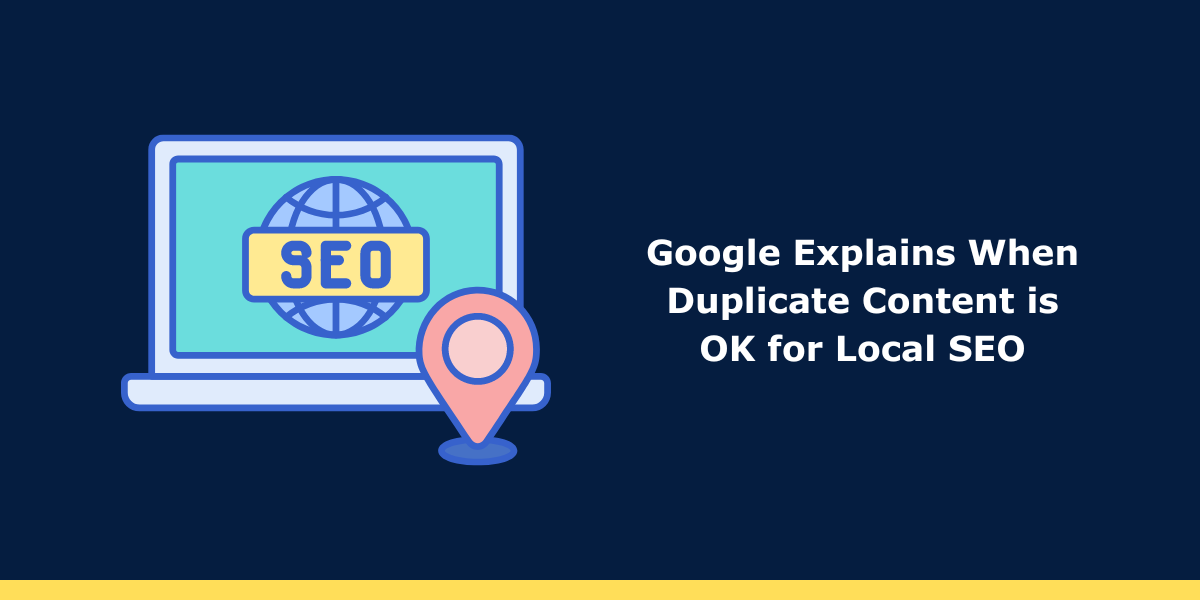
In the world of SEO, duplicate content is often seen as a big no-no. However, there are certain situations where it can be acceptable, especially for local SEO. Google has clarified when duplicate content might be permissible for businesses targeting local search results.
Understanding Duplicate Content
Duplicate content refers to substantial blocks of content that appear across or within identical or similar domains. For local businesses, this can often happen unintentionally. For example, if a company has multiple locations, the webpages for each location might contain essentially the same information, differing only in details like the address and phone number.
When Duplicate Content is Acceptable
Google understands that some duplicate content is unavoidable, especially for local businesses with multiple locations. Here are scenarios where duplicate content might be considered acceptable:
- Multiple Locations: If a business has several branches, it’s normal for the descriptions of services, product offerings, and other business details to be very similar across different location pages. Google recognizes this and doesn’t penalize businesses if the content is relevant to the respective locations.
- Legally Required Information: In some industries, companies must display specific information, such as disclaimers or legal notices, which may be the same across multiple pages. This type of duplicate content is understood to be necessary and is not penalized.
- Syndicated Content: Some content, like product descriptions provided by manufacturers, may be used by multiple retailers. Google can usually tell when this is the case and does not necessarily penalize websites for this duplication.
Best Practices for Local SEO
Even though some duplicate content is acceptable, it’s very important to follow best practices to ensure your local SEO is optimized:
- Unique Content for Each Location: Try to customize as much content as possible for each location. Highlight unique aspects of each branch, such as local events, specific services offered, or staff profiles.
- Local Keywords: Use keywords specific to each location to help search engines knows the relevance of each page to local searches.
- Structured Data Markup: Use structured data to give search engines with more information about your business and its locations. This can help to show your visibility in local search results.
- Avoid Over-Optimization: Avoid overstuffing keywords or use hidden text to improve rankings. Focus on creating valuable, relevant content for users.
Conclusion
While duplicate content is generally avoided in SEO, there are exceptions, particularly for local businesses with multiple locations. By understanding when duplicate content is acceptable and following best practices, businesses can improve their local SEO without fear of being penalized by Google.
If you need help, consider checking out our monthly SEO packages and let the experts help you.

